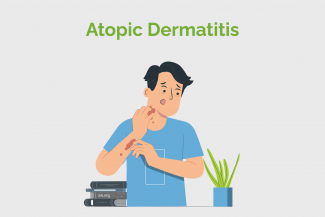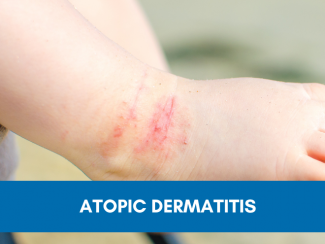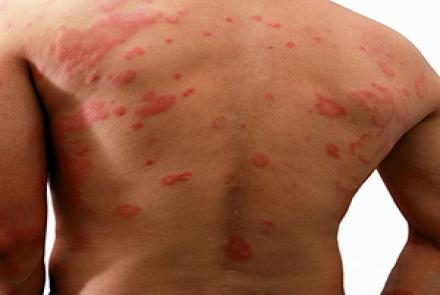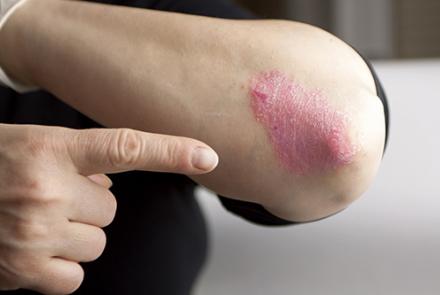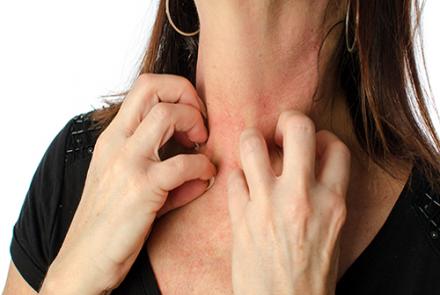The management of Atopic Dermatitis or Eczema can be like a roller coaster. An understanding of the nature of the problem can help prevent the anguish and distress that most patients and their loved ones experience.
Childhood eczemas affect not just the child, but the entire family. The role of the dermatologist is not merely to prescribe some salves and lotions, but to educate the family on the care of the child’s skin and lifestyle changes that treatment entails.
Adult patients with Atopic Dermatitis also need the help of family for managing their day to day life as well as help in coping with the financial burden.
Managing a chronic relapsing condition like Atopic Dermatitis can be a daunting task.
Care of the Skin
Keeping the skin healthy involves developing a daily skin care routine and sticking to it come what may. This routine needs to be fuss free and a part of daily life like brushing one’s teeth or combing one’s hair.
Bathing:
Whenever we step out of a long steaming bath, our skin has to actually work hard to come back to its normal level of temperature and moisturization. This is often difficult for the skin of patients with Atopic Dermatitis to do. Hence it is important for them to avoid any extreme injury to the skin. The bath water should be luke warm or as close to skin temperature as possible. Even though bathing is very soothing, prolonged baths especially prolonged bath tub baths should be avoided. Soap should be avoided as far as possible or used only in “pits and parts” i.e., armpits, private parts, face, hands and feet. A mild, unscented non colored soap or cleanser is the best or use the soap recommended by the dermatologist. Channa dal powder (besan) or abrasives like pumice stones or loofah are best avoided. Immediately after a bath, pat the skin dry with a soft towel or air dry the skin. Avoid rubbing the skin or brisk drying of the skin. Avoid coarse towels or Turkish towels.
Moisturization:
It is very important to apply a lubricant immediately after a bath. The skin of atopics lacks skin oil. Hence the water that has been absorbed into the skin during a bath needs to be sealed in. A study has shown that the amount of water in the skin reduces with the passage of time. Hence it is very important to use the moisturizer immediately after bathing.
In winter. lubricants like Vaseline, coconut oil, olive oil or sesame seed oil are the best choice. Use a good quality petroleum jelly and cover the entire skin. In summer a cream is often better tolerated than oil. There are many medicated creams in the market. Choose one without perfume or color. Avoid creams containing urea which tend to sting. Creams containing oatmeal and aloe extracts may be more soothing. One may need to try out different creams initially and then stick to one that suits one the best.
Moisturizers may need to be reapplied during the day, if the skin feels dry and taut after washing or if it looks visibly flaky. To enhance the moisturization effect, the skin may be moistened with water and then the moisturizer reapplied.
Personal Care Products:
Patients with Atopic dermatitis are often sensitive to various perfumes, flavors, coloring agents, dyes, preservatives, etc. Hence it is recommended to use as few personal care products as possible. Choose ones that are fragrance free and without color. Products marked as hypoallergenic may be less likely to cause rashes. However, some children with sensitive skin have been known to react to them as well.
There is also a misconception in many consumers’ minds that products marked ‘herbal’ are completely safe. Herbal based products are also known to cause skin irritation or allergies. Patients may also react to the preservatives and colors in them. There are many plant based ingredients that are notorious for their allergy inducing potential. It is important to stick to the toiletries like cleansers, shampoos, powder, etc. that have suited one in the past. Avoid changing brands or trying out newer products as far as possible.
Clothing:
Garments made out of cotton or silk are best tolerated. Clothes made of wool and synthetic fibers often irritate the skin of an atopic patient and should be avoided as far as possible. If wearing them is unavoidable, they should be worn with a cotton undergarment or cotton lining. Sometimes the tabs on clothes can irritate the patient’s sensitive skin and are best removed from the garment. Avoid clothes treated with anti crease or anti wrinkle chemicals. Clothes should be washed with a simple detergent and well rinsed to ensure that there are no detergent residues. Avoid using fabric softeners, Optical brighteners or fabric conditioners.
Environment:
A patient with eczema may be exposed to various allergens in the form of plants, house dust, animals and the air in the environment. Problems can occur even when the patient is exposed to the allergen for a limited time or to miniscule amounts of the allergen. Patients should determine which substances or circumstances cause the disease to get aggravated and avoid them.
The patient’s environment should be clean and dust free. Avoid carpets and heavy drapes that tend to collect dust. The bedroom in particular should be regularly cleaned preferably with a vacuum cleaner or damp dusting. If a child is allergic to house dust mites, the mattresses and pillows can be encased in special dust proof covers that are available and the bedding should be washed in hot water ( >55C) every ten days. The bedroom should be well ventilated. If there is an air conditioner, the bedroom temperature and humidity need to be lowered to reduce the proliferation of house dust mites.
Cigarette smoking may irritate the eyelids and is best avoided near children with Atopic Dermatitis. A study done in Germany on school children corroborated this observation. Children exposed to environmental tobacco smoke are at a higher risk of developing atopic eczema.
Substances like chlorine, mineral oil, solvents or sand can irritate the skin. A shower followed by moisturization is a must immediately after swimming in a pool or the sea. Prolonged swimming in chlorinated pools is best avoided. Changes in temperature and humidity can trigger a flare of Atopic Dermatitis. The low humidity of winter or of air conditioning, dry climates or over heated indoor areas can trigger a flare of Atopic Dermatitis. Alternately sweating and chilling can cause Atopic Dermatitis to flare in some patients.
Food
Dietary factors have been known to aggravate Atopic Dermatitis. Identifying the extent and nature of food allergy is not always an easy job. Food allergies are more common, especially in younger children below the age of 3 years. A food allergy should be suspected if there are other allergies to food like gastrointestinal symptoms like pain, vomiting, diarrhea and/ or reparatory tract symptoms like congestion, sneezing and wheezing. Dietary manipulation is worthwhile in patients with very severe eczema or those who do not respond to standard treatments. Dietary intervention consists of a careful clinical history, a diet diary and elimination of suspected foods for a short trial period. If omission results in clinical improvement, this is confirmed by a challenge.
Dietary manipulation should be done under the supervision of a doctor and a dietician’s advice should be sought to make sure that the atopic child does not suffer from any nutritional consequences. All this does add to the burden of daily living.
Dermatologist Dr Belinda Vaz delves deep into the causes, types and preventive measures for Atopic Dermatitis or eczema in children.


